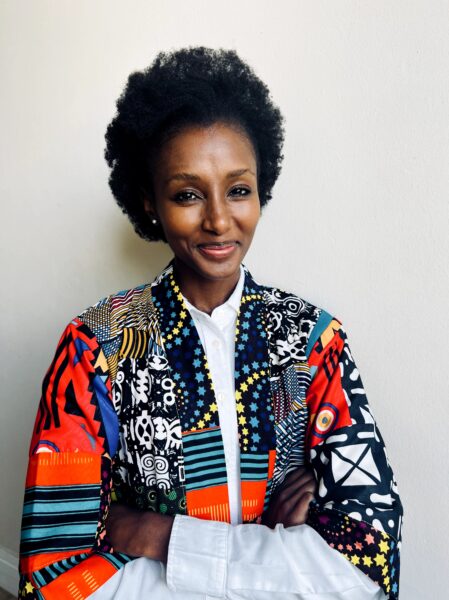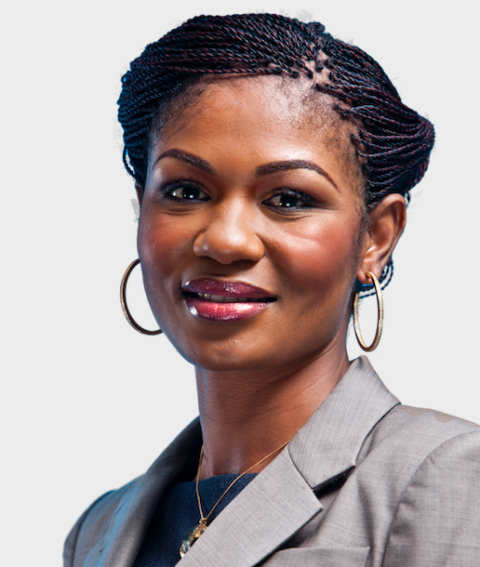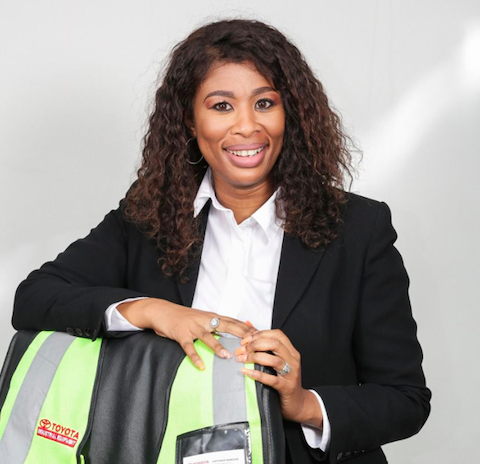Business Day National Women’s Day
Forging A New Path
The adage, “It’s a man’s world”, has been rendered old-fashioned and irrelevant by women who are creating a new paradigm, especially in male-dominated sectors.
Women such as chief digital officer of BCX and the founder of Rekindle Learning, Rapelang Rabana; executive director of CSIR Biosciences, Dr Boitumelo Semete; CEO of Vedanta Zinc International, Deshnee Naidoo; and co-founder and director of the Tisang Group, Lusanda Tyebileyo, have made awe-inspiring strides in their chosen professions.
Professional success requires personal fortitude and determination, especially in the disciplines of science, technology, construction and mining. Along the way, these formidable women have discovered what really matters to them and making an impact on their industries and broader society comes top of the list.
Earning respect
Rabana, a computer scientist, entrepreneur and keynote speaker, says she believes the impact of women such as her is to “demonstrate to other women that we should trust the validity of our own journey and appreciate our own value. Technology is most powerful when it reflects the values and needs of the constituents it serves – we cannot adequately address that mandate without women being a core part of the industry”.

Semete, who holds a PhD in biochemistry and MSc in management finance and investment, points to her ability to communicate with communities and easily translate the science behind interventions into language they can grasp, while also having the technical proficiency to engage technical audiences such as scientists, investors, business and other stakeholders as part of her success formula. As a leading researcher, she has been involved in developing nanotechnology drug delivery systems for TB, HIV and malaria, the bearing of which is massive, considering their effect on the disease burden on the continent and globally.
Chemical engineer Naidoo has carved out an enviable career in the mining and metals industry and says that she doesn’t see herself as a leader and a “woman-in-mining” but perceives herself as someone who has worked her way meritoriously up the rungs of the corporate ladder. She says though that she recognises that women bring diversity “in our overall approach, our thinking and in execution. We remind society that it is possible for women to hold leadership positions in mining – and so we create paths that others can then follow, or be inspired by”.
Becoming influencers
Rabana says, “In South Africa we tend to focus on diversity, meaning race and gender. But true diversity also speaks to diversity of thought, experience and world perspectives.
“As someone who has been an entrepreneur and founded and run tech start-ups for the last 12 years, this has given me different world-views that I bring into a corporate structure. A key
perspective I bring is that nothing is set in stone, nothing is fixed, that everything we assume to be ‘life’ or ‘reality’ was in fact made up by another group of people and we can also make up something else that suits our objectives. The fluidity of the entrepreneurial journey deeply embeds that perspective”.
Naidoo explains that the traits that are key to her success are that she is, “authentically curious, very driven and highly competitive. I am adaptive and thrive in disruption and am also naturally entrepreneurial”.
Semete says that being inquisitive and passionate, as well as having an appetite to study in a field where a PhD is a basic requirement, has had massive advantages. For Rabana, being a listener, influencer and disruptor are some of the reasons why the World Entrepreneurship Forum named her Entrepreneur for the World.
Despite the testing and tough disciplines they have chosen, these women are proof that passion is essential for being a high achiever. For them, it’s not about the complexities or high IQ required for science or engineering, but about the people whose lives their work touches.
Semete’s drive is an ode to the transformative and revolutionising potential of biotechnology. As a visionary she “endeavours to affect change at scale by being a policy influencer and engaging crucial public and private sector players in science and technology so that South Africa can deliver innovative products and tools that save lives and eliminate disease”.
Rabana, who has shared the stage with global influencers such as Malcolm Gladwell and will.i.am is motivated to reach ever-higher heights because “technology represents a second to none opportunity to conceive an idea in your mind and manifest it in reality”.
Even though the spin-offs of leadership such as visibility and responsibility make some shy away, these women embrace the opportunity to occupy places of influence.
Tyebileyo, a civil engineer by profession, found engineering fitting to her strong personality and sense of independence. Leading a construction company, she says: “I subscribe to the notion that says, be prepared to work hard. However, stay true to yourself, believe in your inner greatness, and above all, trust and believe that God has something spectacular in store for you.” Having been responsible for CAPEX budgets of R100-million, she has demonstrated her acumen.
As young women in science, technology, engineering and mathematics (STEM) look for role models, these women obviously fit the bill. Tyebileyo attests that while the opportunities are remarkable, “the biggest misconception within industry today is that if you are a woman, specifically a black woman, in engineering or the built environment, all opportunities will be handed to you on a silver platter”. She warns that this is not the case and emphasises that hard work is the differentiating factor.
Naidoo warns against buckling under the common misconceptions that women in mining are “one of the guys” – the idea that you have to be one to “survive” in a male-dominated industry.
This can persuade some women to take on the armour of masculinity. This is unnecessary because women’s own brand of leadership is powerful. She also indicates that there may often be a perception that women occupy support roles as opposed to leadership roles, and you must be ready to override that.
South African female leaders stand shoulder to shoulder with their global counterparts: Naidoo being one of a handful of female CEOs in her industry worldwide. Semete attests to the fact that South African scientists are held in high regard, despite the small size of the local market and the challenges of securing funds for research, development and innovation.
Having completed her post-doctoral research at the University of Nottingham and École polytechnique fédérale de Lausanne in Switzerland and being involved in a number of thought leadership projects such as the African Union Strategy for Health Research, Semete is the epitome of what a career with a global footprint looks like.
Rabana, who was hailed as a Young Global Leader by the World Economic Forum, says: “The next few years are crucial for my understanding of how to deliver and operate technology at scale, reaching millions of consumers and thousands of businesses, which will augment my knowledge and experience in seeding and starting new ventures. Thereafter, I would like to use my skills to launch new ventures and successfully reach critical scale, particularly in market segments that are underserved.”






 Sign-up and receive the Business Media MAGS newsletter OR SA Mining newsletter straight to your inbox.
Sign-up and receive the Business Media MAGS newsletter OR SA Mining newsletter straight to your inbox.